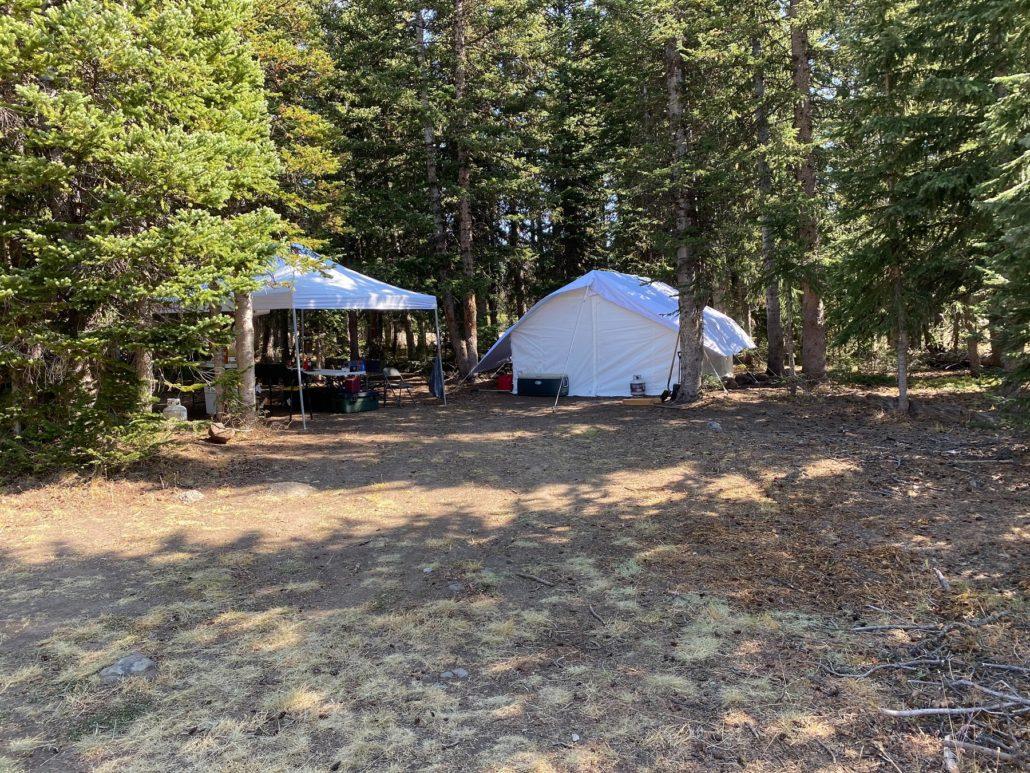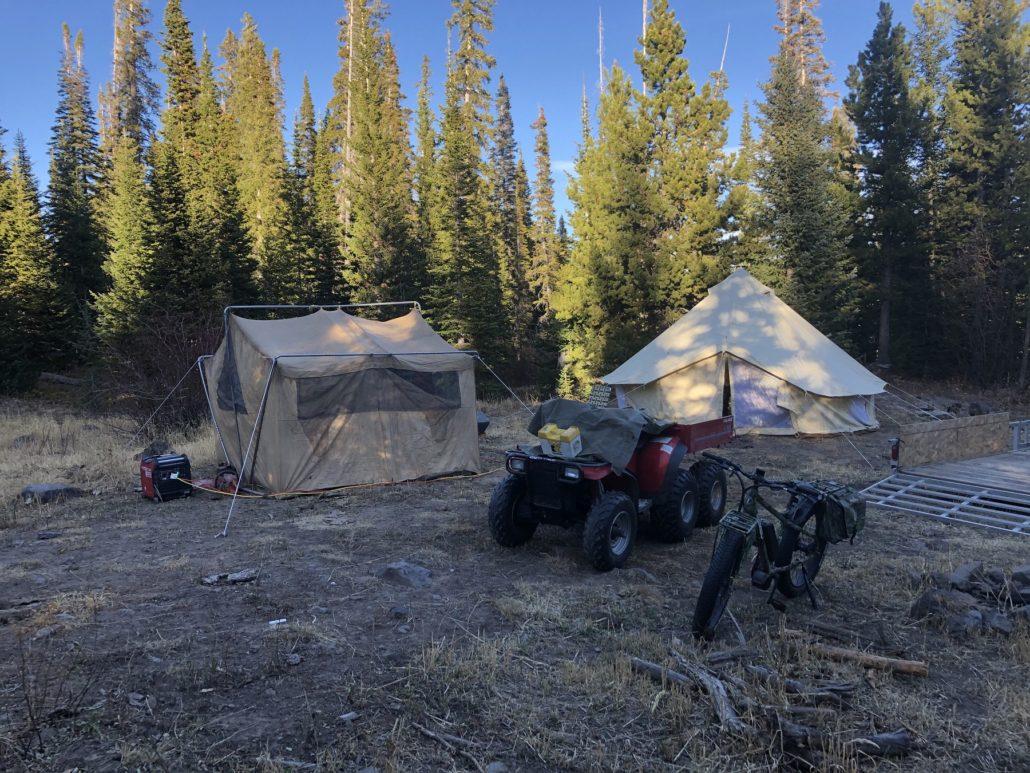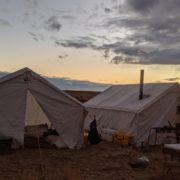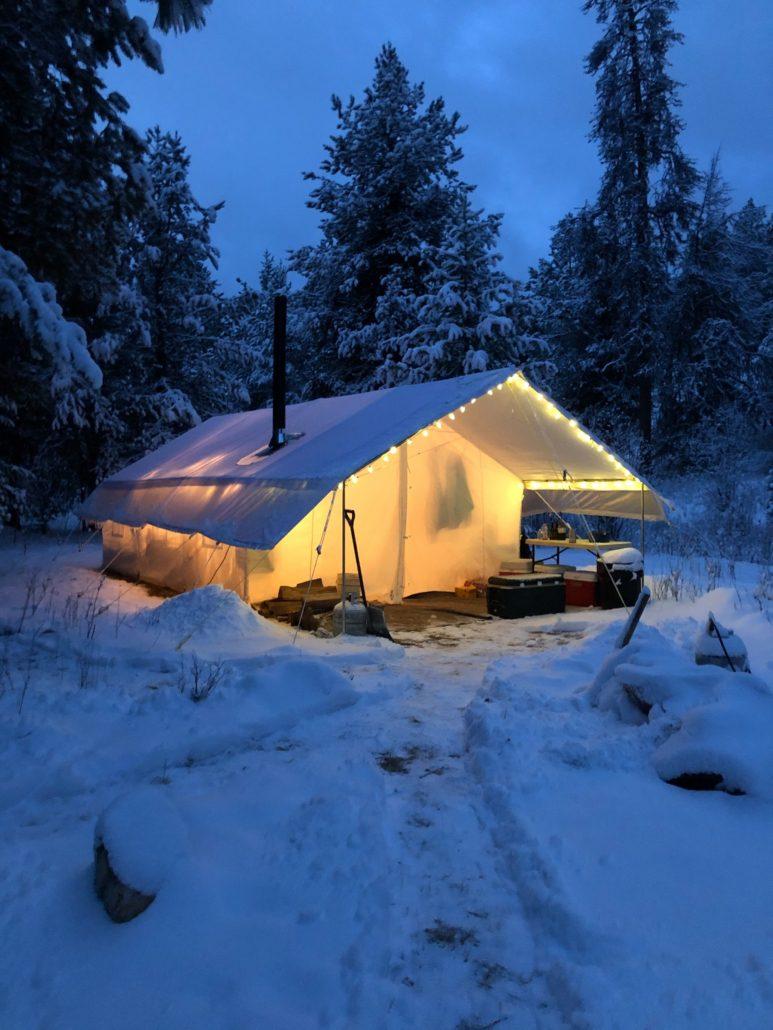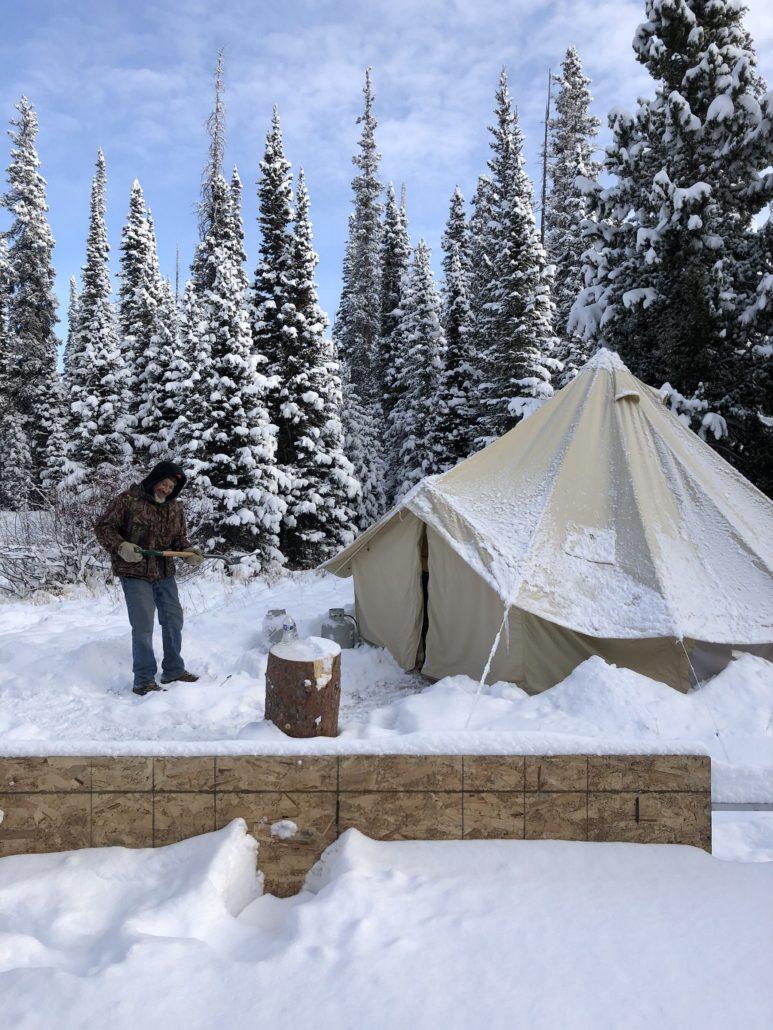Canvas Tent Buying Guide: What to Consider Before Making Your Purchase
Camping, glamping, and hunting are a great ways to get away from the hustle and bustle of everyday life, and there’s nothing like spending a few nights in the great outdoors. A tent is an essential piece of camping gear, and choosing the right one is crucial for a successful trip. Canvas tents have become a popular choice for camping enthusiasts due to their durability and ability to withstand harsh weather conditions. In this basic canvas tent buying guide, we will discuss what to look for when buying a canvas tent and provide some helpful tips to make your camping experience more enjoyable.
Canvas Materials and Construction
One of the most important things to consider when buying a canvas tent is the materials and construction used in its production. Canvas tents are typically made of either cotton or polyester canvas.
Cotton is the traditional choice as it is natural and sometimes more rustic-looking. It’s loved for its breathability which allows for a cooler tent in the summer and warmer tent in the winter.
However, polyester has become the new preferred choice for most canvas tent enthusiasts. Advances in modern technology have enabled polyester fabrics to have the same breathability as cotton canvas but without the risk of rotting since there is no organic material to decompose. This means it’s infinitely lessl likely to have mold grow (though mold can grow on any surface). Additionally, polyester will be 5-20% lighter while being 50-100% stronger and won’t require the expensive rain and UV treatments of cotton canvas.
Saying something is 100% cotton canvas or 100% polyester canvas can still mean products that are drastically different. How thick is the material? How is it woven together? What is its weight? What is its break and tear strength? What may look the same on paper can be very different in the real world. Start by asking the manufacturer the weight and the break and tear strength ratings.
However, if you aren’t willing to get a fully synthetic canvas, then the next best thing would be a cotton-poly blend material that carries many of the same benefits albeith slightly less.
The construction of a canvas tent is also important. Look for tents that have double-stitched seams and reinforced corners, as these areas are prone to wear and tear. A good manufacturer will double the thickness in areas that come in contact with the poles.
Size and Capacity
Another crucial factor to consider when buying a canvas tent is the size and capacity. Canvas tents are always going to be on the larger size, but how big do you want to go? Smaller tents are generally still pretty roomy even with three adults, gear, and a wood stove, but sometimes you need to accommodate a much larger party. When choosing a tent, consider the number of people who will be using it and the amount of gear that needs to be stored inside. When in doubt, go one size bigger than you think you’ll need.
Ease of Setup
Any canvas tent is going to be a bit of a challenge to assemble, so I don’t think difficulty alone should be the deciding factor, and these tents are definitely worth the effort, but some models are easier to assemble than others. If you are feeling a little overwhelmed by the prospect of assembling an extra large tent, start with a bell tent since these are much easier.

FAQs:
Q: How long do canvas tents last?
A: The lifespan of a canvas tent depends on the quality of the materials and construction. A high-quality canvas tent can last for 10-20 years with proper care and maintenance.
Q: Are canvas tents waterproof?
A: Cotton canvas tents are not completely waterproof, but they are water-resistant. The natural fibers in cotton canvas swell when they get wet, creating a tight seal that helps to keep the water out. Weathering the tent before use will happen create a tighter seal as well. However, prolonged exposure to heavy rain or snow can eventually lead to water seeping through. For cotton canvas tents it is recommended that you apply a waterproofing each year. For polyester tents, no waterproofing is required though a rainfly is still recommended for added protection of your investment.
Q: Can canvas tents be used in all weather conditions?
A: Canvas tents are suitable for use in most weather conditions. For the coldest of times, make sure you have a stove jack installed so you can bring your wood stove alone. For the hottest of times, just make sure your tent comes with ventilation flaps along the ridge.
Q: How do you clean a canvas tent?
A: To clean a canvas tent, use a soft-bristled brush or sponge to remove any dirt or debris. Then, mix a mild detergent with water and scrub the tent gently. Rinse thoroughly with water and allow the tent to air dry completely before storing it. Avoid using harsh chemicals or bleach, as this can damage the canvas fabric.
Q: Are canvas tents heavy?
A: Yep! Don’t plan on carrying this on your back for more than a few hundred feet (and hopefully less).
Q: What are the benefits of a canvas tent?
A: Canvas tents offer several benefits over other types of tents, including:
- Durability: Canvas tents are built to last and can withstand harsh weather conditions and heavy use.
- Breathability: Cotton canvas tents are naturally breathable, allowing air to circulate and preventing condensation from building up inside the tent.
- Insulation: Canvas tents provide insulation against heat and cold, making them comfortable to use in a variety of weather conditions.
- Aesthetics: Canvas tents have a classic, rustic look that many campers find appealing.




